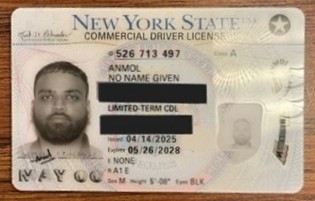The Fourteenth Amendment and Questioning The National Debt
Does the Executive branch of the federal government have any subject matter jurisdiction to raise the debt ceiling under Article Four of the Fourteenth Amendment? It is a fundamental rule of law of the U.S. Constitution that only Congress has the Constitutional authority to raise money for paying the federal debt under Article One Section Eight; therefore, the Executive branch does not have any legal power or legal standing under the Fourteenth Amendment to raise the debt ceiling. The Fourteenth Amendment did not abrogate Article One Section Eight or the check and balance system between the three branches of the federal government that is inherent within the framework of the United States Constitution.
Why all the controversy over Article Four of the 14th Amendment about questioning the national debt when there is no subject matter jurisdiction by Congress, the Judiciary or the Executive? Why is there a wide spread assumption that the Executive branch has a legal duty to enforce a debt ceiling without subject matter jurisdiction? The controversy should be laid to rest once and for all, as the debt ceiling debate will be an ongoing debacle for our country with dire consequences for future generations and our selves.
It is suggested by some that the States can sue the Executive Branch in a federal court to force the President to do his constitutional duty to raise the debt ceiling under the 14th Amendment if Congress fails to do so. This is incorrect reasoning and factually incorrect when the 39th Congress debated the 14th Amendment and submitted it to the States for ratification. No President has a constitutional duty to raise the debt ceiling under the 14th Amendment. Each State Attorney General would have a legal standing in federal court to prevent any President from usurping Article Four of the 14th Amendment as an Executive order to enforce the raising of the federal debt ceiling since it was the States that ratified the document. I use the term ratification for the purpose of this article, but in truth the 14th Amendment was never legally ratified under Article Five of the United States Constitution.
In my opinion, the best expose of Article Four of the 14th Amendment comes from an attorney without legalese language. The following is a portion of his article on the subject:
The Fourteenth Amendment and Questioning The National Debt
By Dr Dale Livingston, DLC, JD
The claim that Section 4 in the 14th Amendment denies the questioning of the public debt.
Due to a particular clause of a particular section, Section 4, contained in the Fourteenth Amendment, people have been misled to believe that today's national debt may not be either challenged or questioned, no matter how deep the fraud may exist as fact or how dangerous it may grow toward the ultimate destruction of our great nation.
The Fourteenth Amendment reads, in reality, "Section 4. The validity of the public debt of the United States, authorized by law, including debts incurred for payment of pensions and bounties for services in suppressing insurrection or rebellion, shall not be questioned."
The first phrase worthy of our attention is the words "the public debt." The word "the" signifies a specific thing being talked about here, not something vague or ambiguous. That is, a present tense kind of existence. I will give you three variations of the following. You will note that it does not say there, nor can it be automatically understood as such, any of the thee following: (1) "The validity of the public debt, now and arising at any time in the future, of the . . ." (2) "The validity of the public debt of the United States, now and arising at any time in the future, authorized by law," (3) "The validity of the pubic debt of the United States, authorized by law, now and arising at any time in the future,"
Three (3) different places were given opportunity to insert any phrase to counteract the "the" directive, directing the matter to the existing debt of the time, much like passing a resolution in Amendment form if you will. This whole idea is further given credence by the following language, . . . "including debts incurred for payment of pensions and bounties for services in suppressing insurrection or rebellion." (Emphasis added)
The word "incurred" is past tense! It was used as a word supportive of the word "including," which goes to the recognition of a broader base that must exist in order for something to be "included" in. Both words are directly linked to the real existence of the concepts of "insurrection" and "rebellion." These were things that the Congress had certainly been concerned with as a matter of the aftermath of the Civil War itself. But these concerns were for what existed at THAT time, or "the" ... "debt." Nothing is said here about any future debt being given such protection from being questioned; in fact it would be ludicrous to believe that the Amendment's framers would have been so ignorant of what future public debt might possibly entail, without actually ever "seeing" that public debt, that they would even propose that such unseen, unnamed, not yet authorized public debt could not be questioned at all.
Thus, we are forced by every logical conclusion by the facts as we ourselves see them, that the Fourteenth Amendment's Section 4 was intended to be regarded as the equivalent of more at a "resolution" to excuse or forgive by force of a constitutional amendment that the public debt that had arisen as a result of the Civil War itself - THAT public debt was not to be questioned! NOT every public debt that might exist thereafter!
The ratification of an Amendment, as with any ratifying act of any form of contract, as to what that Amendment is all about, or that is, what the actual obligations are, goes to the understanding and subsequent of the States themselves when ratifying the Amendment. That is, what did the States believe that the Amendment was doing for THEM at the time? Certainly not that they, the States, would at no time in the future be able to "question the validity" of the public debt! There is no proof anywhere to verify that THAT is what was in the minds or understanding of any of the States that participated in the ratification process of the Fourteenth Amendment. None. The only (public) debt that the Fourteenth Amendment actually applies to is the one that existed BECAUSE OF the CIVIL WAR!
We have every right to question the debt of the Federal Reserve Bank, which they have been imposing upon the people for decades now, without question, because of someone's misconstrument of the Fourteenth Amendment. It just takes applying common sense and the correct understanding of our grammar and language to be able to perceive what is going on here, that along with some basic understanding of contract law itself here.
With all of this understanding, to correct the misleading proclamations of politicians of yesteryear and today, we now see the need to challenge the national debt of today, more than ever, considering that the national debt has been brought upon us by some very fraudulent means. WE SHOULD AND MUST BEGIN TO QUESTION THE NATIONAL DEBT, WHICH IS OUR RIGHT AND OUR DUTY, AND THE 14th AMENDMENT, SECTION 4, IN NO WISE PROHIBITS US OR DENIES OUR RIGHT IN DOING SO, THE COURTS OR THE CONGRESS' PRIOR ERRANT INTERPRETATION THEREOF NOT-WITH-STANDING!










Latest Commentary
Thursday 30th of October 2025
Thursday 30th of October 2025
Thursday 30th of October 2025
Thursday 30th of October 2025
Thursday 30th of October 2025
Thursday 30th of October 2025
Thursday 30th of October 2025
Thursday 30th of October 2025
Thursday 30th of October 2025